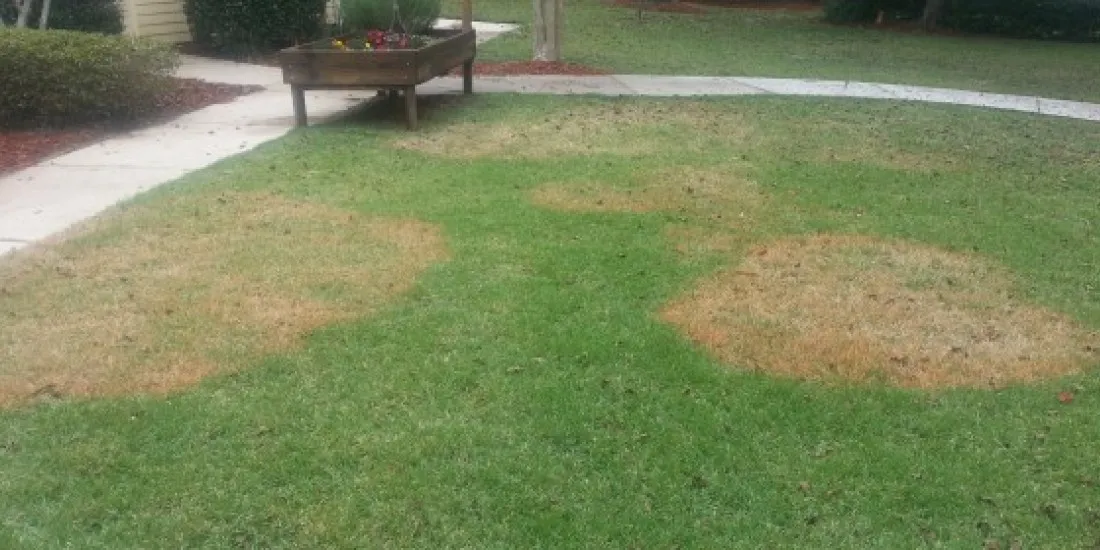A lush, well-manicured lawn adds to curb appeal and enjoyment of your home. But lawns are susceptible to diseases and pests, especially if they're left vulnerable from poor cultural practices like underwatering or being scalped too low. Here are five common things your Gainesville lawn is trying to communicate to you, and how to spot and fix each before they get bad.
Problem #1
Problem: Brown Spots
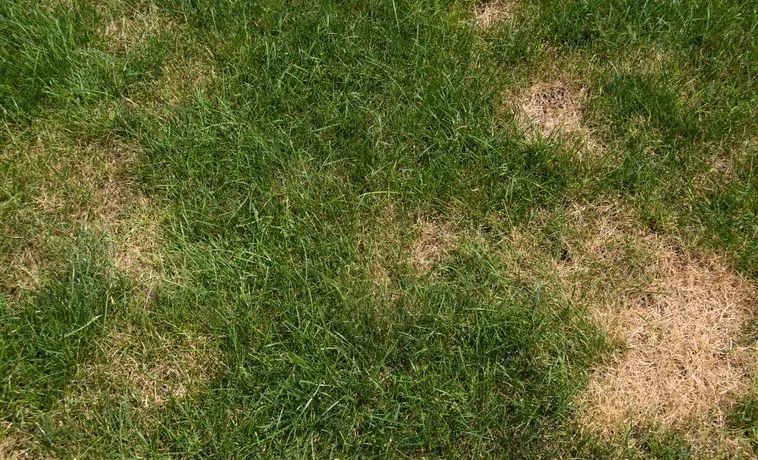
What the Lawn Is Trying to Tell You: There are several causes of brown, or even dead, spots in your turf. Some are obvious, like a dog peeing in a certain area, but others require a little more detective work. It could be weeds dying off from a lawn weed treatment, the soil pH could be too acidic, or even an area having too much shade or not enough water. How do you know? It may have a couple causes like the ones listed in the tips below, but I would start out looking to see if it's too shaded or not getting enough water - as that is most often the case.
If it's in full sun, check your sprinkler coverage by testing the system; you may need to adjust sprinkler head orientation to get full coverage. If it's in the shade, you need 4-6 hours of sunlight to grow a healthy Gainesville lawn. You may want to prune some tree limbs up.
Problem #2
Problem: Grass Is Wilting or blades are folding up
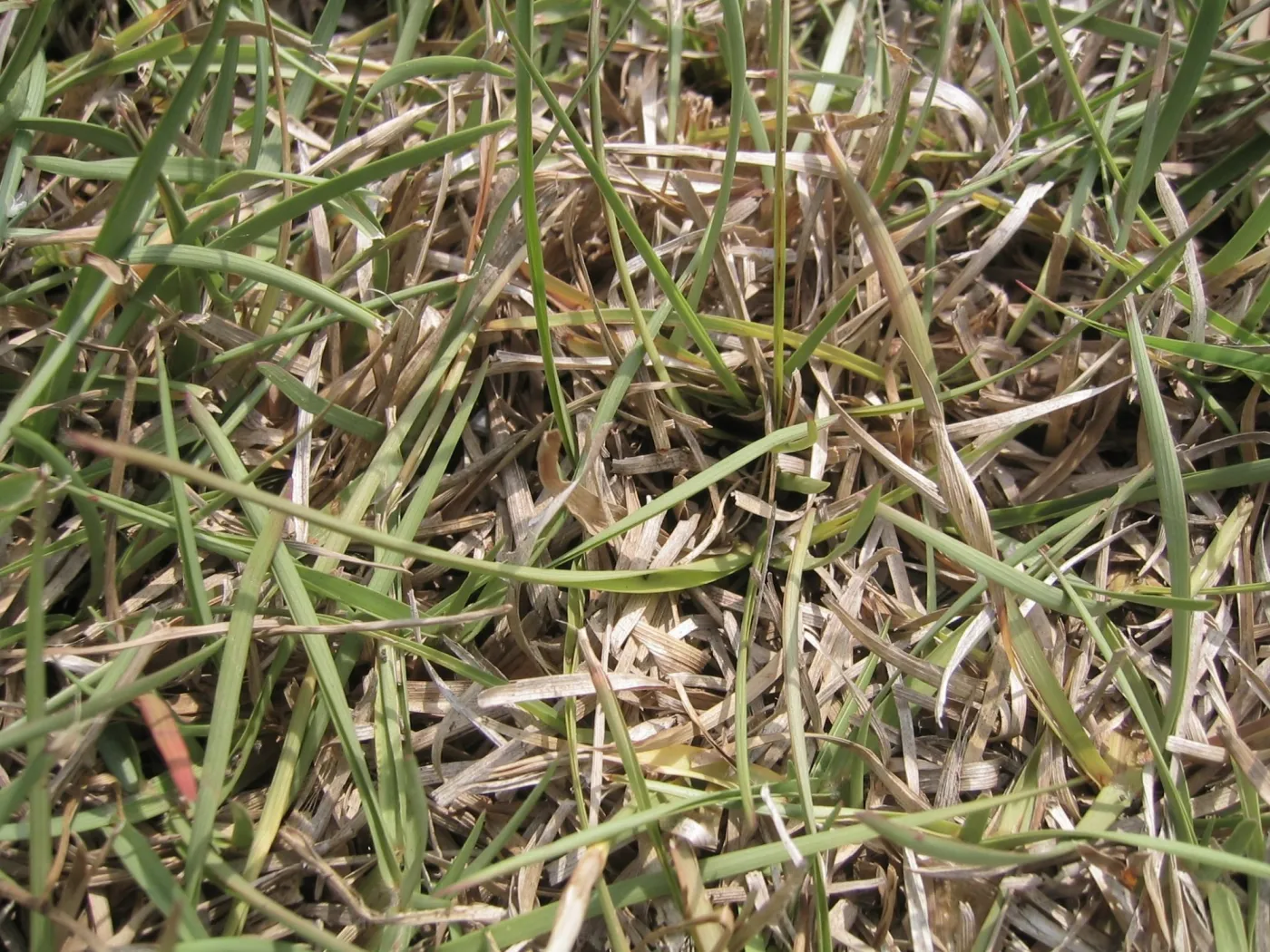
What the Lawn Is Trying to Tell You: It probably needs a deep watering. Most lawns have a mix of different types of grass, and some types will start to wilt or turn brown before the others. In our area, Zoysia is the first to decline in dry weather due to it going dormant. (I know, it's weird that the drought-tolerant grass shows drought stress the qucikest - see our YouTube videos for more on this)
The folding grass blades, even when mixed with healthy green blades, are early indicators that the lawn is starting to suffer from a drought. The photo above is a St. Augustine lawn with bad drought stress.
If you haven't increased your watering in the spring, this is the time. Check soil moisture by sticking your finger in the soil. If the soil is dry, it will feel like sand and know you need to increase your irrigation settings. You will need to water for longer periods of time to allow the water to sink deeper into the soil, and water a minimum of 2x per week.
"You want to water infrequently but longer to encourage the roots to go deeper," our irrigation manager Chuck says. "Watering light everyday is not as good as a deep watering two or three times a week." The ideal time is between 4 and 6 am. Cooler temperatures limit evaporation, but the grass will dry during the day. Watering at night leaves wet grass, which can promote Gainesville lawn fungus and disease.
Problem #3
Problem: Circles Pop Up in the Grass
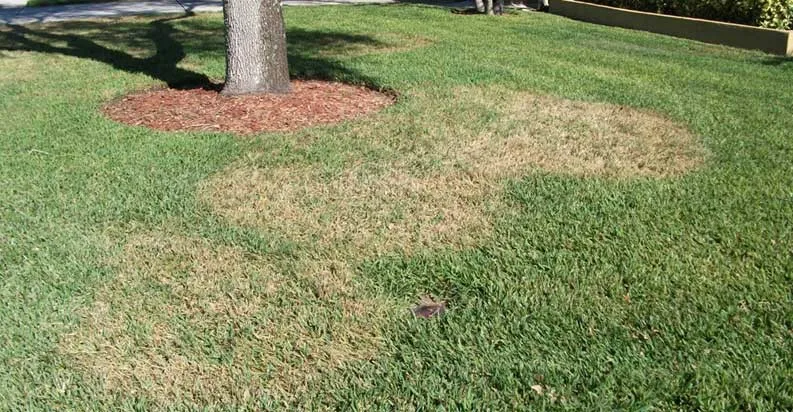
What the Lawn Is Trying to Tell You: The circles, are the result of a fungus in the soil and presents itself as Large Patch or Brown Patch Fungus.
The fungal threads in the soil will initially cause the grass in the circle to appear orange in the outer circle because that is where the fungus is most active. As it grows, the middle will turn brown and the outer ring will expand to take over more and more of your lawn. This disease stays in the soil year-round, but typically pops up in Gainesville grass in Fall and Spring Seasons as we transition between cold and warm weather and there is excess moisture to make it activate.
Reducing irrigation and applying fungicide is your first line of defense against the circles. You only have to treat the affected area, but lawn fungus applications aren't inexpensive. Cutting back irrigation should be a priority, and whatever you do - do not fertilize when you have large patch in your lawn. It will feed the fungus instead of the lawn.
Problem #4
Problem: Grass Won't Grow Under a Tree
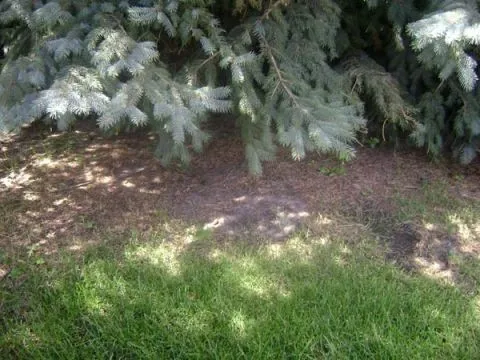
What the Lawn Is Trying to Tell You: Large trees can block the sun, while pine trees drop needles around the trunk, which also can kill the grass.
To be perfectly honest here: let it go. Trying to maintain healthy turf under the tree can be a constant challenge. You'll have to trim back branches to let the sun shine through, or continually rake up leaves and pine straw. Even then, the grass may struggle due to the fight for water and nutrients with the larger and stronger tree roots.
You're better off not having the competition between the tree and the turf. Instead, we recommend putting mulch around the base of the tree and shade-tolerant landscaping like Hydrangea and Agapanthus to add color and create an attractive bed rather than a receding Gainesville lawn.
Problem #5
Problem: Patchy dead spots by sidewalk, walkway, curb
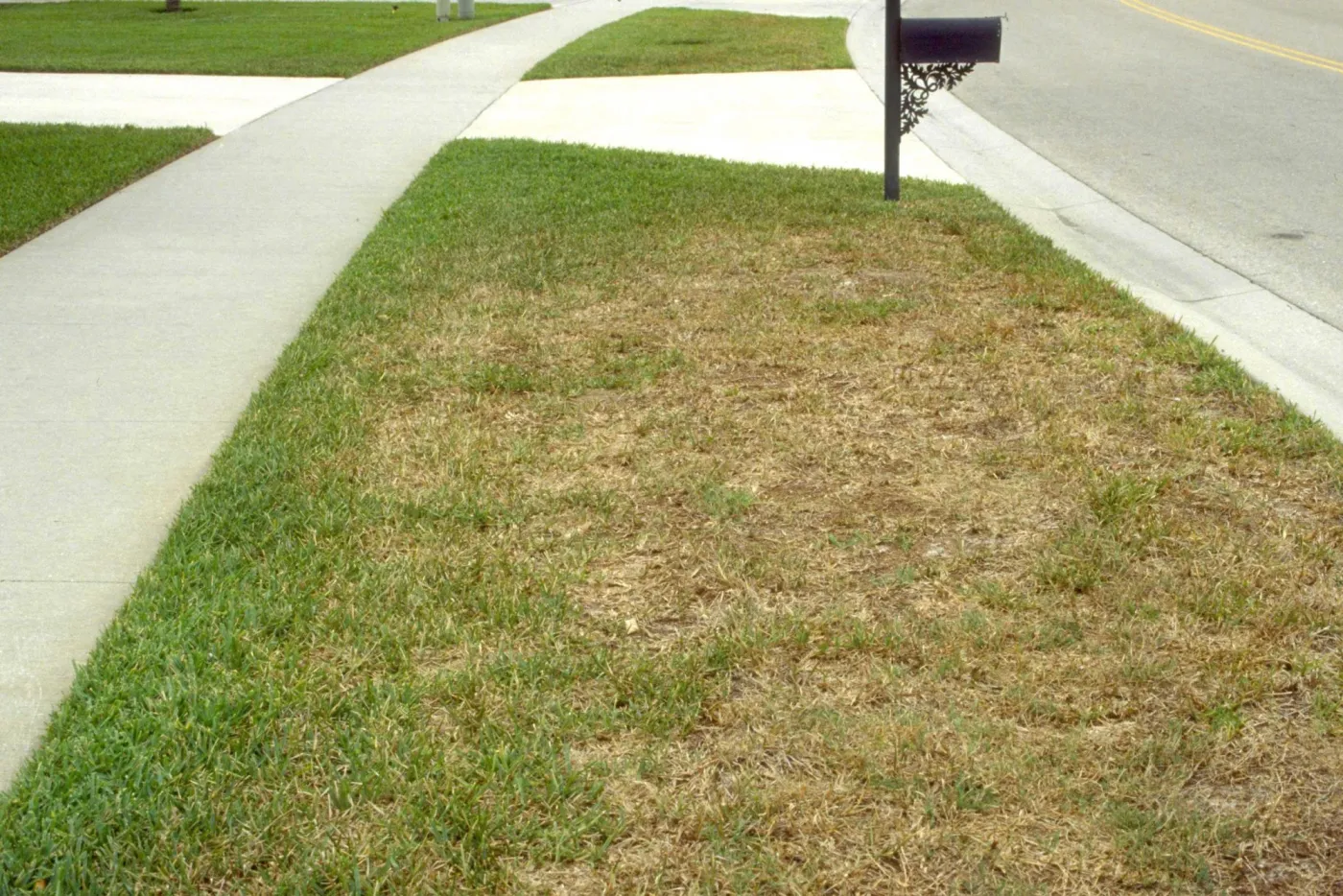
What the Lawn Is Trying to Tell You: Chinch Bugs can take up residence in your Gainesville lawn quickly and cause all kinds of problems. A lawn suffering from disease or heat stress from lack of water is most vulnerable, and typically they love to attack near concrete, driveways, or walkways (such as the photo shows). The trick is to identify it quickly and treat them before they damage more of the lawn.
Common lawn pests include chinch bugs, army worms, webworms, and spittlebugs - but the most common this time of year are chinch bugs. These ant-sized bugs feast on drought-stressed grass and typically start by the concrete. But they overwinter in your lawn, and the larva emerge there, eating and killing turfgrass roots.
You can treat infestations with insecticides, but be careful. "Knowing what you're going after is the key," Chuck said. "It's important to use an insecticide that is labeled for that insect on not just any big box store product." If you aren't experienced in this area, hire a Gainseville lawn pest control professional.
We hope these 5 tips about what your lawn is communicating are helpful to keep your Gainesville landscape looking top notch. If we can be of service, cal us at (352) 378-5296 or email info@themasterslawncare.com.


